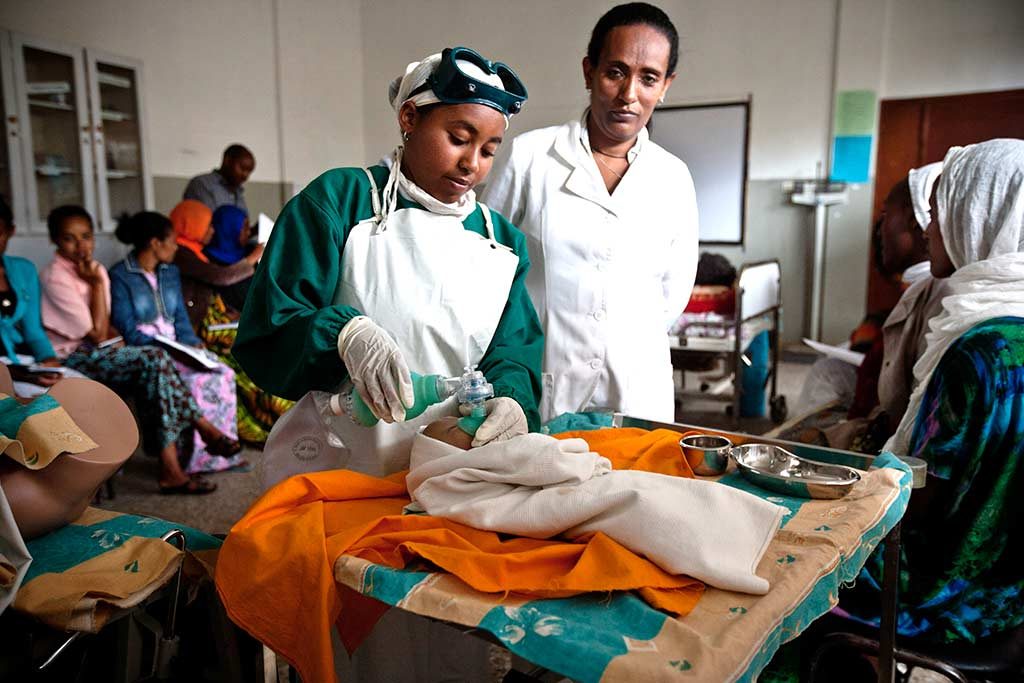
To meet the needs of its people, the government of Ethiopia is working to build up its health workforce. As a result, the nurse-to-population ratio rose from 1 per 5,000 in 2009 to 1 per 2,132 in 2014.1 Despite efforts to retain these workers, however, a recent study of nurses working in public health facilities

Jakarta, Indonesia—Restiani was just 28 weeks pregnant when she went into labor. Her husband, Martudilah, drove her by motorbike on the 30-minute journey to their public hospital where she gave birth to a premature, underweight boy, Edgar. Hamriani was much further along—38 weeks. She awoke one night with a throbbing headache and realized she was

Nyabor Bandak, a gender counselor at Gambella Teachers Education and Health Science College, vividly remembers the nursing student’s visit to her office. The student, who was well on her way to fulfilling her dream of becoming a nurse, had discovered she was pregnant. Sad and distraught, the third-year student confided in Bandak that her partner had denied responsibility for the baby.







